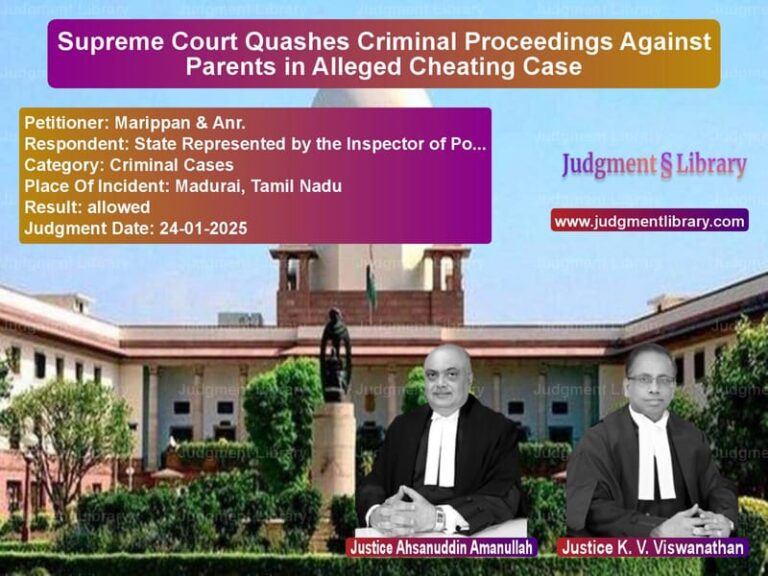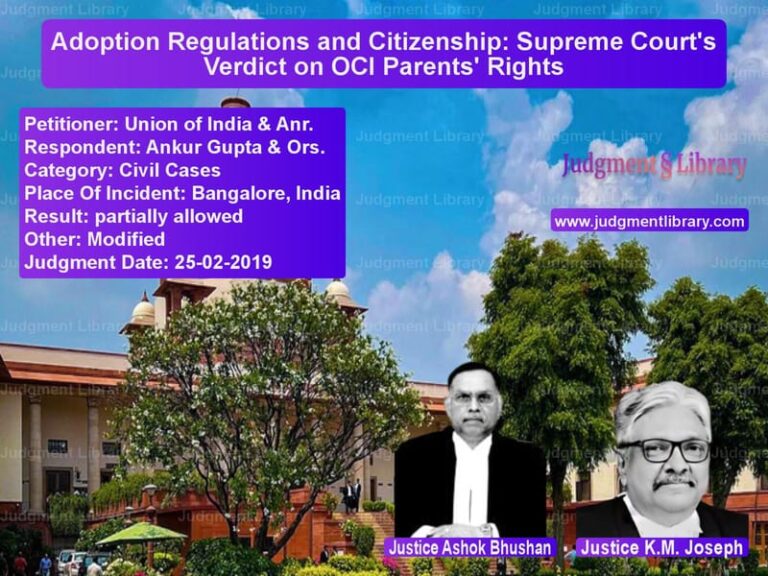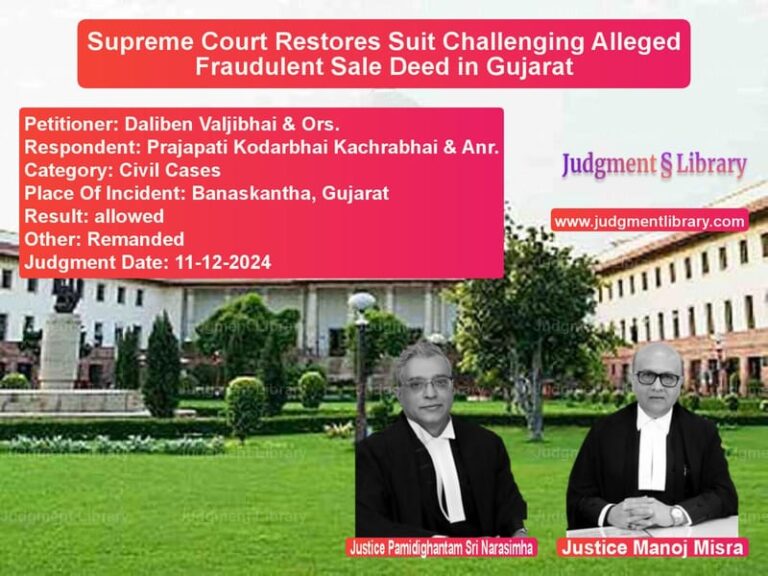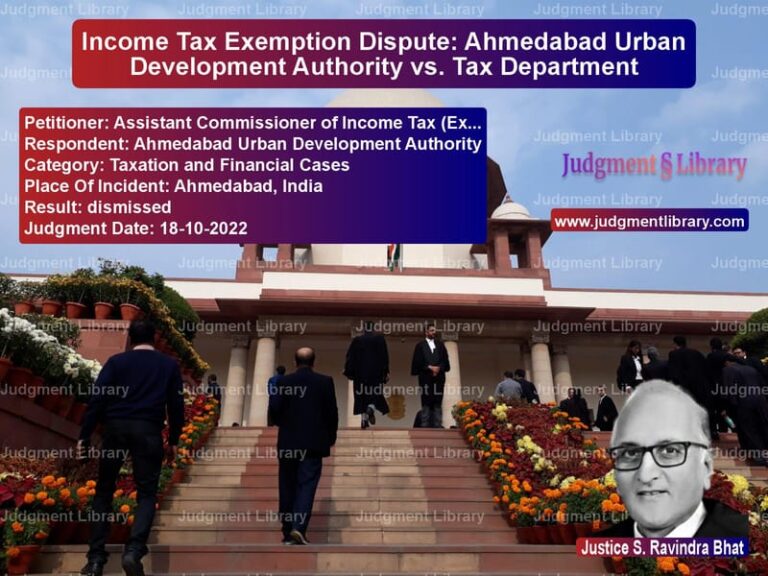State Bank of India Found in Default for Not Deducting TDS on Leave Travel Concession
The Supreme Court of India has recently delivered a significant judgment in the case of the State Bank of India (SBI) versus the Assistant Commissioner of Income Tax concerning the issue of non-deduction of Tax Deducted at Source (TDS) on Leave Travel Concession (LTC) provided to employees. The case revolves around the appellant, SBI, being held as an assessee in default for the Assessment Year (AY) 2013-14, for not deducting TDS on LTC payments that were made to its employees for travel, which included foreign travel, violating the provisions of the Income Tax Act, 1961.
Background of the Case
The appellant, State Bank of India, provided Leave Travel Concession (LTC) to its employees, a payment that is generally exempt under Section 10(5) of the Income Tax Act, 1961. However, the exemption is subject to the travel being solely within India, and the travel must be conducted on the shortest route between designated places in India. The issue arose when employees of the appellant bank undertook travel with a foreign leg as part of their LTC claims, which violated the statutory provisions.
The revenue authorities, after scrutinizing the claims, held that since the travel included foreign destinations, the payment made could not be exempt under Section 10(5) of the Act, 1961. The appellant bank failed to deduct TDS on these payments, leading to the charge of default. The issue was further examined by the Assistant Commissioner of Income Tax, the Commissioner of Income Tax (Appeals), and the Income Tax Appellate Tribunal (ITAT), all of whom ruled that the appellant was indeed in default for not deducting TDS on the LTC payments. The High Court upheld these findings, and the case was brought before the Supreme Court.
Arguments of the Appellant (SBI)
The appellant, State Bank of India, represented by Senior Advocate Shri K.V. Vishwanathan, argued that although the employees undertook travel that involved foreign destinations, the payments made by the bank were based on the shortest route between designated places in India. The foreign leg of the travel was incidental, and the bank made payments in accordance with the domestic travel provisions. Hence, SBI contended that the payments made to employees should remain exempt from TDS under Section 10(5) of the Income Tax Act.
Additionally, SBI argued that there was no specific bar under Section 10(5) for foreign travel, and the provisions should cover the scenario where the primary travel occurred between two places in India, even if foreign destinations were included in the journey. Furthermore, the bank pointed out that no payments were made for the foreign leg of the travel, and thus, the TDS liability should not apply.
Arguments of the Respondent (Income Tax Department)
The Income Tax Department, represented by the Assistant Commissioner of Income Tax, countered that the provisions of Section 10(5) explicitly require the travel to be within India and on the shortest route. The inclusion of foreign travel violated the statutory guidelines, making the entire LTC payment taxable. The department argued that the exemption under Section 10(5) does not extend to foreign travel, regardless of the intent behind the journey, and the appellant was required to deduct TDS on the payment made for the journey.
The department also noted that the payments made by SBI to its employees, which included foreign travel, could not be considered exempt as LTC under the Income Tax Act. It was further pointed out that the basic objective of LTC was to encourage domestic tourism, and permitting foreign travel under the guise of LTC violated the scheme’s purpose.
Supreme Court’s Ruling
After hearing both parties, the Supreme Court found that the findings of the Delhi High Court and the Income Tax Appellate Tribunal were correct. The Court observed that the provision for Leave Travel Concession under Section 10(5) of the Income Tax Act was designed for domestic travel and was not intended to cover foreign travel. The inclusion of foreign destinations in the travel itinerary violated the conditions of the exemption, and the payments made for such travel were not exempt under the Act.
The Court also emphasized that the appellant, as an employer, had a statutory duty to deduct TDS under Section 192(1) of the Income Tax Act. Since the payments made for the foreign leg of the journey were not exempt under Section 10(5), the bank was required to deduct TDS at source. The Court rejected the argument that the payments made were for domestic travel, despite the foreign leg, and held that the appellant had failed in its duty to comply with the statutory TDS requirements.
Conclusion
The Supreme Court upheld the findings of the lower authorities and dismissed the appeal filed by the State Bank of India. The Court reiterated the importance of complying with the provisions of the Income Tax Act, particularly regarding TDS deductions on payments made to employees. The judgment serves as a reminder that employers must ensure that they adhere strictly to the tax provisions and cannot claim exemptions for payments made that do not meet the legal criteria.
Petitioner Name: State Bank of India.Respondent Name: Assistant Commissioner of Income Tax.Judgment By: Justice Sudhanshu Dhulia, Justice S. Ravindra Bhat, Justice Uday Umesh Lalit.Place Of Incident: New Delhi.Judgment Date: 03-11-2022.
Don’t miss out on the full details! Download the complete judgment in PDF format below and gain valuable insights instantly!
Download Judgment: state-bank-of-india-vs-assistant-commission-supreme-court-of-india-judgment-dated-03-11-2022.pdf
Directly Download Judgment: Directly download this Judgment
See all petitions in Income Tax Disputes
See all petitions in Banking Regulations
See all petitions in Tax Evasion Cases
See all petitions in Judgment by Sudhanshu Dhulia
See all petitions in Judgment by S Ravindra Bhat
See all petitions in Judgment by Uday Umesh Lalit
See all petitions in dismissed
See all petitions in supreme court of India judgments November 2022
See all petitions in 2022 judgments
See all posts in Taxation and Financial Cases Category
See all allowed petitions in Taxation and Financial Cases Category
See all Dismissed petitions in Taxation and Financial Cases Category
See all partially allowed petitions in Taxation and Financial Cases Category







